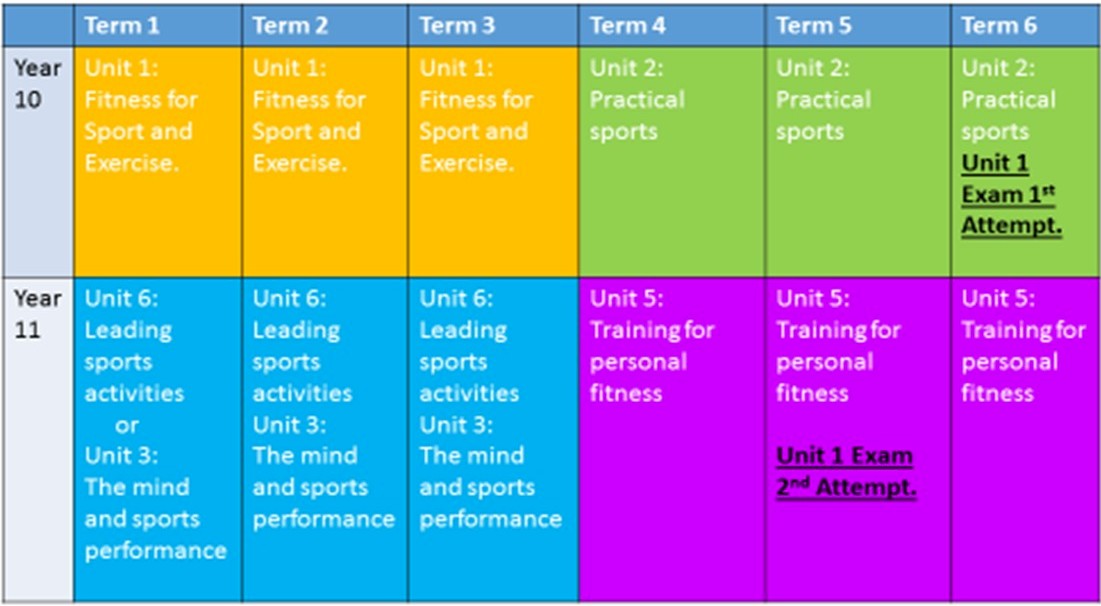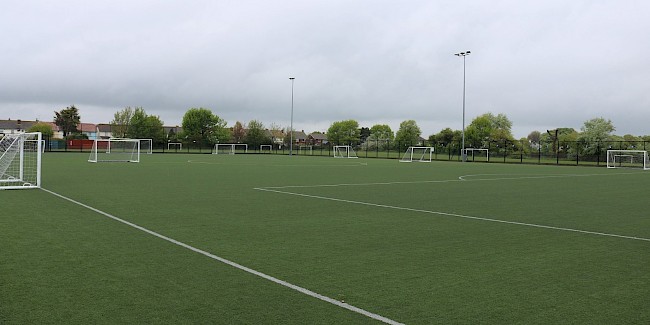KS4, Year 11 BTEC Sport Level 2
Students will complete four units:
- Unit 1 – Fitness for sport and exercise: Learners will learn about the components of physical and skill related fitness taking into account fitness training and testing methods (mandatory externally assessed, on-screen test).
- Unit 2 – Practical sports: Students will improve and develop their own practical performance in 2 sports as well as examining that of other athletes. Knowledge and application of rules, regulations, officials’ roles and responsibilities in various sports will also be investigated and assessed (mandatory internally assessed).
- Unit 3 – Training for personal fitness: This is a synoptic unit taking in information earnt in Unit 1 and 2. Learners will extend their study of the principles of training from Unit 1 and develop understanding of the effects of exercise. Finally they have the opportunity to design a personal fitness training programme using sports from Unit 2 learning strategies for training success and review progress (mandatory internally assessed).
- Unit 6 – Leading sports activities: Students will study the skills and qualities of expert leaders, then learn how to plan and lead sports activity sessions (optional internally assessed). This is an optional unit and is subject to change if required but is the preferred choice of the PE Department currently. Other internally assessed options for this unit are; Unit 4 – The Mind and Sports Performance or Unit 5 – The Sports Performer in Action.
Assessment
Each unit accounts for 25% of the final grade awarded.
Unit 1 Fitness for sport and exercise will be externally assessed through an on-screen test. These tests are randomised and students should not expect to see the same questions or order of questions as their classmates. The assessment can take place outside of exam windows under normal exam conditions, students have two opportunities to be assessed throughout the course.
The other 3 units will be assessed internally through portfolio work. All assignments have a 1st submission with opportunity for a re-submission in whatever form they take, usually through written reports, investigations, posters, recorded practical work and interviews. (Unit 2 – 3 assignments; Unit 3 – 4 assignments; Unit 6 – 3 assignments).
The structure of BTEC courses mean it is important to note two factors: importance of coursework and awarding structure.
Importance of coursework details that all official coursework during the course counts towards the final grade. For example work completed at the start of Year 10 has the same value to the overall grade as work completed at the end of Year 11.
Awarding structure outlines that it is possible to limit the overall grade awarded in a unit, and whole course, by achieving a Level 1 Pass or Level 2 Pass in the first assignment of any unit. For example achieving a Level 2 Pass in Unit 2 Assignment 1 means the student can only achieve a maximum Level 2 Pass regardless of improved performance in future assignments in Unit 2.














